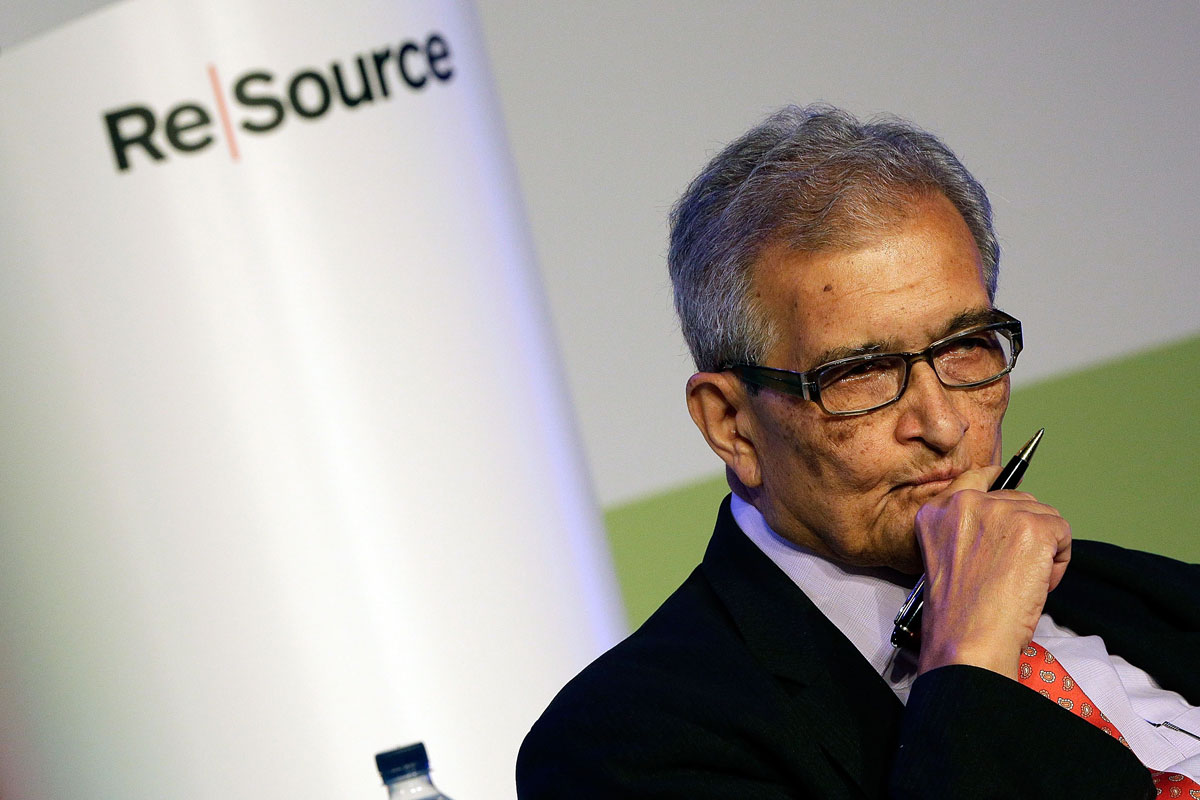Amartya Sen Calls for Political Engagement to End Inequalities in India
File photo of Nobel laureate Prof. Amartya Sen. (AFP/Getty Images)
Nobel laureate Amartya Sen has called for political engagement in India to ensure issues of education and healthcare are fully addressed to fight against social inequalities, writes Aditi Khanna. – @Siliconeer #Siliconeer #India #AmartyaSen #Education #Healthcare
The 84-year-old leading Indian economist and philosopher said he would carry on doing his best through the trust he had set up after his Nobel Prize for Economics in 1998 to address social equalities in India.
“The work of the trust has got a lot of attention, so I think we have contributed to the diagnosis of the problem, which is important and necessary for solutions. I think there is need for political engagement on that,” said Sen, addressing the South Asia Center of London School Economics (LSE), Jan. 19, to mark the release of a new edition of his seminal work on welfare economics titled ‘Collective Choice and Social Welfare.’
In response to a question posed by PTI if he feels his work on welfare economics is as celebrated in action in India as his Nobel Prize achievements, he replied: “Well the simple answer is, no. Not only recently but I have been writing about issues of healthcare and education, particularly girl’s education, for years.
“I try to do my best. With my Nobel money I set up a trust called the Pratichi Trust there’s a Bangladesh part and an India part. The India part deals with the issues of education and healthcare, mainly analysis. The Bangladesh part deals mostly with the issue of gender inequality, particularly training women journalists. The Indian part has been concerned with a rather larger set of problems and I will carry on doing my best.”
The Thomas W. Lamont University Professor and Professor of Economics and Philosophy, Harvard University, also expressed concerns over the election of U.S. President Donald Trump despite winning less number of popular votes.
“The American context is complex. Trump is hardly the right person to speak for the poor… He has one of the lowest favorability ratings of anyone to become U.S. President,” he said.
The senior academic and author said the U.S. elections and Brexit pointed to a phenomenon of public reasoning being “distorted” by fake news.
“The entire Brexit debate was turned around on what the EU could be blamed for, claims which were exaggerated. It threw up the importance of epistemology for ethics. Democracy has to be a continuous process, the referendum should not have been taken as final word but more as a contribution to debate,” he said.
“I do believe in European unity very much, given the two World Wars it reflects enormously important values. I feel there should have been more of a dialogue within Britain and Europe to find a more favorable outcome,” he added.


